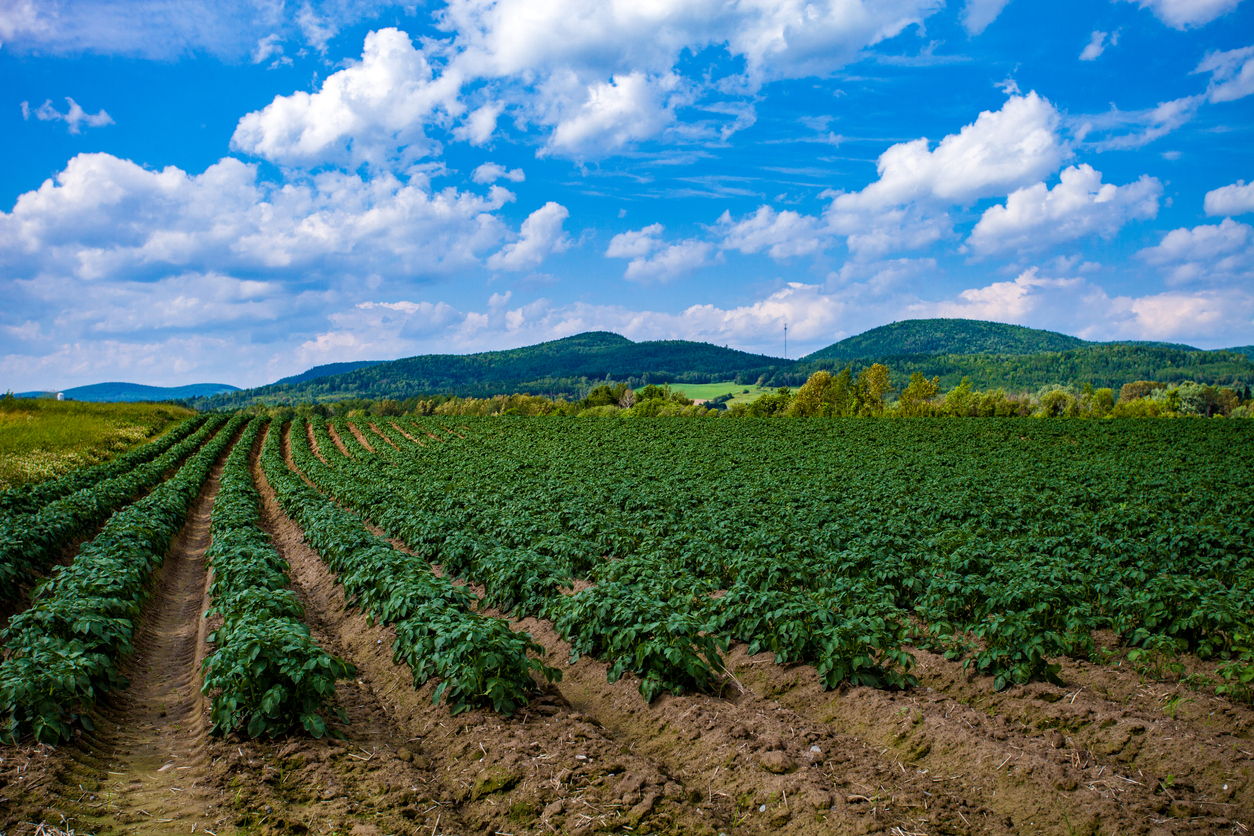
BGLS-producing Potatoes Could Lead to Broad-spectrum Protection from Pest and Diseases
May 26, 2021| |
International Potato Centre (CIP) researchers and partners genetically engineered potatoes to produce benzylglucosinolate for enhanced broad-spectrum pest and disease protection. The results are published in Transgenic Research.
In the Andes, potatoes are traditionally planted with Andean edible tuber mashua, which is perceived to confer pest and disease protection to potatoes because of its natural compound called benzylglucosinolate (BGLS). Thus, the CIP researchers developed transgenic potatoes expressing BGLS genes from Arabidopsis. The transgenic potato plants produced as high as 5.18 pmol BGLS/mg fresh weight compared to the non-transgenic potato plant with undetectable levels of BGLS. Analyses showed that the transgenic potato exhibited a possible resistance to late blight disease and the Andean potato weevil. However, abnormalities in the leaves and tubers were observed in half of the transgenic events, implying the undesirable impact of BGLS genes on potatoes.
With the results, the researchers concluded that there is a need to further explore techniques on improving the expression of the BGLS biosynthetic pathways in potatoes without affecting plant development.
Read the abstract in Transgenic Research.
| |
You might also like:
- Potato (Solanum tuberosum L.) GM Events
- Scientists Develop Transgenic Potato with Enhanced Tuber Quality and Stress Tolerance
- Transgene-free PDS Mutants in Potato Generated
Biotech Updates is a weekly newsletter of ISAAA, a not-for-profit organization. It is distributed for free to over 22,000 subscribers worldwide to inform them about the key developments in biosciences, especially in biotechnology. Your support will help us in our mission to feed the world with knowledge. You can help by donating as little as $10.
-
See more articles:
-
News from Around the World
- GM White Maize Contributes to Food Security in South Africa
- Study Shows Plants Respond to Different Light Intensities
- Scientists Discover Ancient Melon Key in Breeding Disease-Resistant Watermelons
- Researchers Identify Genomic Regions Associated with Yield Potential and Climate Resilience in Bread Wheat
- World Vegetable Center Sends Seeds to the Svalbard Global Seed Vault
- Herbicide Tolerant GM Canola Gets Commercial Approval in Australia
-
Research Highlights
- BGLS-producing Potatoes Could Lead to Broad-spectrum Protection from Pest and Diseases
- Scientists Show Correlation of Cry1Ac mRNA and Protein Abundance in Biotech Cotton Plant
- Polish Wheat's Long Grain Trait Traced to One Genetic Component
- Identified Fruit Protein Helps Control Tomato Ripening
-
Plant
- Rice VCS1 as Tool to Mark and Visualize Vegetative Cell of Pollen
-
Health
- Medicago's Plant-Based COVID-19 Vaccine Shows Positive Phase 2 Results
-
Read the latest: - Biotech Updates (January 21, 2026)
- Gene Editing Supplement (January 28, 2026)
- Gene Drive Supplement (February 22, 2023)
-
Subscribe to BU: - Share
- Tweet

